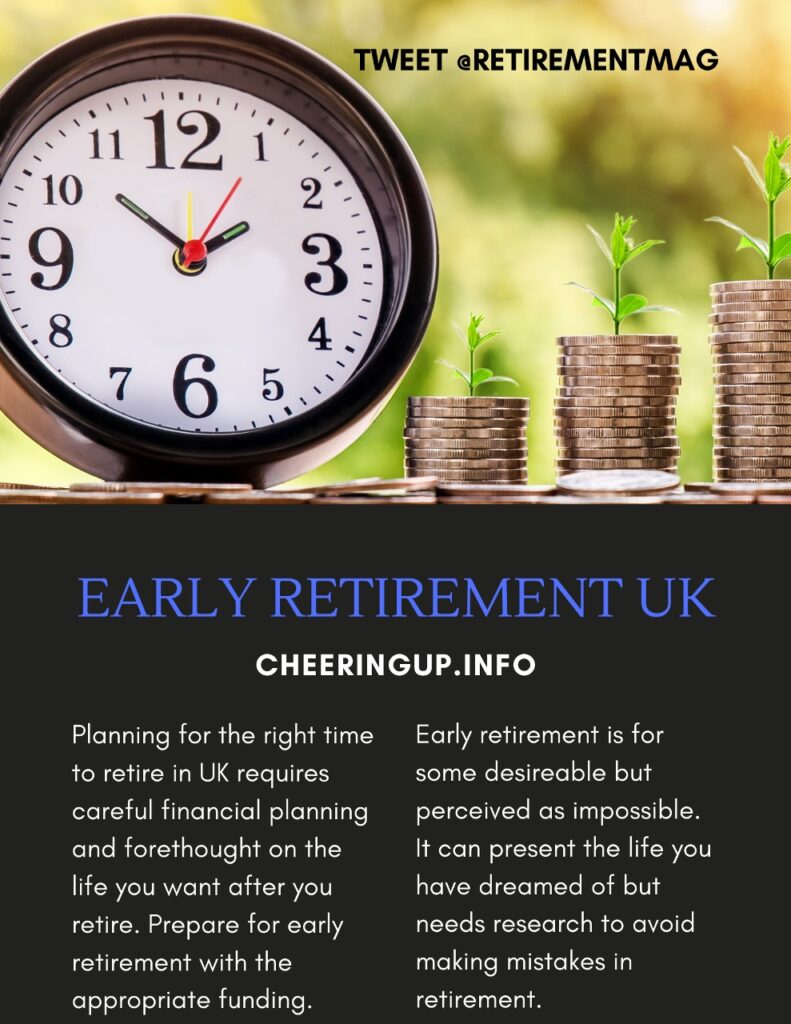Money. It swirls around us, a constant current. We chase it, we fear it, we try to understand it. But have you ever stopped to consider that maybe, just maybe, the key to financial well-being isn’t about spreadsheets and stock tips? What if it’s about understanding ourselves? Think about this: studies suggest that emotional intelligence can be a stronger predictor of financial success than raw intelligence. That’s a game changer! It’s not just about numbers; it’s about the stories we tell ourselves about money. And that’s where Morgan Housel’s “The Psychology of Money” comes in. This isn’t your typical finance book. Forget the jargon-filled lectures. Instead, we’re diving deep into the human side of money. We’re going to explore how our biases, our histories, and our very nature shape our financial decisions. I’ve read it, and it’s changed how I see my own finances, and I think it can change yours too.
Cracking the Code: Financial Sanity in the UK, Powered by Psychology
In this article, we’ll unpack the core principles of Housel’s work. We’ll translate them into practical, actionable steps for you, the discerning reader, living in the UK. We’ll explore nine specific ways you can apply these insights to your daily life, from navigating the complexities of the UK housing market to building a resilient financial future. Ready to ditch the financial anxieties and embrace a more grounded, realistic approach to money? Let’s get started.
The Psychology of Money: A Deep Dive
Morgan Housel’s “The Psychology of Money” isn’t a guide to getting rich quick. It’s a guide to understanding why we make the financial choices we do. It’s about the stories we tell ourselves, the biases we hold, and the emotional baggage we carry when it comes to money. Housel argues that financial success is less about what you know and more about how you behave. That’s a powerful statement. He dismantles the notion that financial success is solely driven by intelligence or technical expertise. Instead, he focuses on the soft skills, the emotional intelligence, and the long-term perspective that truly matter. He’s not just talking about investing; he’s talking about living.
1. No One’s Crazy:
Housel’s first principle is a powerful one. Everyone has a unique perspective on money, shaped by their experiences, their upbringing, and the world they live in. What seems “crazy” to one person might be perfectly rational to another. Think about the differences between someone who grew up during the Great Depression and someone who experienced the boom of the 1990s. Their financial outlooks are worlds apart. This understanding is crucial. It fosters empathy and helps us avoid judging others’ financial decisions. It also encourages us to reflect on our own biases and how they influence our choices. We must understand that financial decisions are often influenced by the world as we see it, not as it objectively is.
2. Luck vs. Risk:
Luck and risk are two sides of the same coin. Housel highlights the importance of recognizing the role of chance in financial outcomes. Some people get lucky, and some people get unlucky. We tend to attribute success to skill and failure to bad luck, but the reality is often more complex. He illustrates this with examples of successful entrepreneurs and investors who benefited from being in the right place at the right time. Conversely, he points out that even the most prudent individuals can be derailed by unforeseen circumstances. This isn’t about dismissing hard work. It’s about acknowledging that luck plays a significant role and that we should be humble about our successes and forgiving of our failures. We should focus on what we can control and accept what we can’t.
3. Never Enough:
Many people fall into the trap of constantly wanting more. They chase the next promotion, the bigger house, the fancier car, believing that these things will bring happiness and fulfillment. However, Housel argues that true wealth lies in knowing when enough is enough. He warns against comparing ourselves to others and falling victim to the “keeping up with the Joneses” mentality. This is especially relevant in today’s social media-driven world, where we are constantly bombarded with images of other people’s seemingly perfect lives. The pursuit of endless material possessions can lead to a cycle of dissatisfaction and financial instability. He suggests focusing on intrinsic values, such as relationships, experiences, and personal growth, rather than external markers of success.
4. Compounding Confusion:
Compounding is a powerful force, but it can be difficult to grasp. Housel illustrates the magic of compounding with stories of Warren Buffett and other long-term investors. He emphasizes the importance of patience and consistency. It’s not about getting rich quick; it’s about building wealth slowly and steadily over time. Many people underestimate the power of small, consistent investments over long periods. They are drawn to get-rich-quick schemes or high-risk investments, hoping to achieve rapid returns. However, true wealth is built through disciplined saving and investing, allowing compounding to work its magic. This is a critical point!
5. Getting Wealthy vs. Staying Wealthy:
Getting wealthy and staying wealthy are two distinct skills. Housel argues that getting wealthy often requires taking risks and being optimistic. Staying wealthy, on the other hand, requires humility and fear. It’s about protecting what you have and avoiding catastrophic losses. He emphasizes the importance of having a margin of safety, being adaptable, and recognising that past success is not a guarantee of future performance. Many people who achieve financial success fail to maintain it because they become complacent or overconfident. They take on excessive risk or fail to adapt to changing market conditions. Staying wealthy requires a long-term perspective and a focus on preserving capital.
6. Tails, You Win:
Housel introduces the concept of “tails, you win,” which refers to the disproportionate impact of a small number of events. In investing, this means that a few successful investments can significantly outweigh the losses from many unsuccessful ones. He uses the example of venture capital, where a handful of successful startups can generate returns that dwarf the losses from the many failed ones. This principle highlights the importance of taking calculated risks and being comfortable with failure. It’s not about avoiding all losses; it’s about ensuring that the potential gains from successful investments outweigh the inevitable losses.
7. Freedom:
True wealth is not about accumulating material possessions; it’s about gaining freedom. Housel argues that the ability to control your time and do what you want is the ultimate form of wealth. This means having the financial resources to pursue your passions, spend time with loved ones, and live life on your own terms. Many people sacrifice their freedom in the pursuit of wealth, working long hours in jobs they dislike or taking on excessive debt. However, true wealth allows you to live a life that is aligned with your values and priorities.
8. Man in the Car Paradox:
The “man in the car paradox” refers to the tendency to judge people based on their material possessions. We often assume that people who drive expensive cars or live in large houses are successful and happy. However, Housel argues that these material possessions often reflect insecurity and a desire to impress others. True wealth is often invisible, hidden behind a modest lifestyle and a focus on intrinsic values. He suggests that we should focus on building our own wealth rather than trying to impress others.
9. Saving:
Saving is the foundation of financial success. Housel emphasises the importance of saving, regardless of income level. He argues that saving is not about having a high income; it’s about having a high savings rate. This means spending less than you earn and investing the difference. Many people believe that they need to earn a lot of money to become wealthy. However, Housel argues that even modest incomes can lead to significant wealth if they are coupled with disciplined saving and investing.
10. Reasonable vs. Rational:
Housel distinguishes between “reasonable” and “rational” financial decisions. Rational decisions are based on logic and analysis, while reasonable decisions are based on personal circumstances and values. He argues that reasonable decisions are often more effective than rational ones. This is because people are not purely rational beings. They are influenced by emotions, biases, and personal experiences. He suggests that we should strive to make reasonable financial decisions that are aligned with our individual goals and values.
11. Surprise!
The world is full of surprises. Housel emphasises the importance of being prepared for unexpected events. He argues that we should build a margin of safety into our financial plans to protect ourselves from unforeseen circumstances. This means having an emergency fund, diversifying our investments, and being adaptable to change. Many people underestimate the likelihood of unexpected events and fail to prepare for them. However, being prepared for surprises can help us navigate financial challenges and maintain our long-term financial stability.
12. Room for Error:
Housel stresses the importance of having a room for error. This means building a buffer into your financial plans to account for mistakes and unforeseen expenses. He argues that having a margin of safety can help us avoid catastrophic losses and maintain our financial stability. He states that most people don’t have enough room for error.
13. You’ll Change:
People’s financial goals and priorities change over time. Housel argues that we should be flexible and adaptable in our financial planning. He suggests that we should avoid making irreversible decisions based on our current circumstances or beliefs. Many people make financial plans based on their current needs and desires, failing to anticipate how their priorities might evolve. However, life is full of transitions, and our financial plans should be able to accommodate these changes. This means regularly reviewing and adjusting our plans to ensure they remain aligned with our evolving goals.
14. Nothing’s Free:
Everything has a price. Housel warns against chasing high returns without understanding the associated risks. He emphasises the importance of due diligence and avoiding investments that seem too good to be true. Many people are lured by the promise of quick and easy wealth, failing to recognise the hidden costs and risks. However, true wealth is built through disciplined and informed decision-making. We must understand the trade-offs and risks associated with every financial decision.
15. You and Me:
We are all playing different financial games. Housel argues that we should avoid comparing ourselves to others and focus on our own individual goals and circumstances. He emphasises the importance of understanding our own risk tolerance and investment horizon. Many people fall into the trap of comparing themselves to others, leading to feelings of inadequacy or envy. However, everyone has a unique financial journey, and we should focus on making decisions that are right for us.
16. The Seduction of Pessimism:
Pessimism often sounds smarter than optimism. Housel warns against being overly influenced by negative news and predictions. He emphasises the importance of maintaining a long-term perspective and recognising the inherent optimism in the long-term growth of the economy. Many people are drawn to pessimistic narratives, which often seem more realistic or sophisticated. However, history has shown that long-term progress is driven by innovation and optimism. We should strive to maintain a balanced perspective and avoid being swayed by short-term pessimism.
17. When You’ll Believe Anything:
Stories are powerful. Housel argues that we are often more influenced by compelling stories than by hard data. He emphasises the importance of critical thinking and avoiding investments based on emotional appeals or hype. Many people make financial decisions based on stories or narratives that resonate with them, rather than on objective analysis. However, we should strive to make informed decisions based on facts and data.
18. Confessions:
Housel concludes by sharing his own financial confessions and lessons learned. He emphasises the importance of humility, continuous learning, and adapting to change. He shares that even with a strong understanding of financial psychology, he is still learning and making changes.
Applying “The Psychology of Money” in the UK: Nine Actionable Steps
Now, let’s translate these principles into practical steps for UK residents:
1. Navigate the UK Housing Market with a “Reasonable” Mindset:
- Action: Instead of chasing the “dream house” based on social pressure, define your “enough.” Consider your long-term needs, financial stability, and personal priorities. Calculate affordability with a margin of safety, accounting for potential interest rate rises and unexpected expenses.
- Why: The UK housing market can be highly emotional. Housel’s “reasonable vs. rational” principle helps you avoid overextending yourself based on emotional impulses.
2. Build a “Room for Error” Emergency Fund:
- Action: Aim for 3-6 months’ worth of essential living expenses in an easily accessible savings account. Given the UK’s economic fluctuations, this buffer is crucial.
- Why: Housel’s emphasis on “room for error” is vital in the UK, where unexpected job losses or cost-of-living increases can significantly impact financial stability.
3. Embrace Long-Term Compounding with ISAs and Pensions:
- Action: Regularly contribute to tax-efficient investment vehicles like ISAs (Individual Savings Accounts) and pensions. Start early, even with small amounts, to maximise the power of compounding.
- Why: Housel’s focus on compounding highlights the importance of patience and consistency. The UK’s tax-advantaged savings schemes are excellent tools for building long-term wealth.
4. Cultivate Financial Freedom by Defining “Enough”:
- Action: Identify what truly matters to you beyond material possessions. Define your “enough” in terms of time, experiences, and relationships. Regularly review your spending habits and prioritise experiences over things.
- Why: Housel’s concept of freedom as true wealth is particularly relevant in the UK’s consumer-driven society.
5. Avoid the “Man in the Car Paradox” by Focusing on Intrinsic Value:
- Action: Resist the urge to impress others with material possessions. Focus on building genuine connections and pursuing personal growth. Invest your money in long term investments rather than items that depreciate.
- Why: Housel’s warning against the “man in the car paradox” encourages a more grounded approach to wealth, focusing on substance over appearances.
6. Practice “Tails, You Win” with Diversified Investments:
- Action: Diversify your investment portfolio across different asset classes, such as stocks, bonds, and property. Accept that some investments may underperform, but focus on the potential for a few to generate significant returns.
- Why: Housel’s “tails, you win” principle applies to the UK stock and property markets, where a few successful investments can offset numerous smaller losses.
7. Prepare for “Surprise!” by Building Adaptability:
- Action: Stay informed about economic trends and be prepared to adjust your financial plans as needed. Cultivate a mindset of continuous learning and adaptability.
- Why: Housel’s emphasis on preparing for surprises is crucial in the UK’s dynamic economic landscape, where political and economic changes can significantly impact finances.
8. Resist the “Seduction of Pessimism” by Maintaining a Long-Term View:
- Action: Avoid making impulsive financial decisions based on short-term market fluctuations or negative news cycles. Focus on the long-term growth potential of the UK economy and your investments.
- Why: Housel’s warning against pessimism encourages a more balanced and optimistic approach to investing, avoiding emotional reactions to short term events.
9. Understand “You’ll Change” by Regularly Reviewing Your Financial Goals:
- Action: Schedule regular reviews of your financial plans and goals. Adjust them as your priorities and circumstances evolve. Consider life stages, career changes, and family needs.
- Why: Housel’s recognition that people’s goals change over time is essential for long-term financial success in the UK, where life transitions are inevitable.
By applying these principles, UK residents can navigate the complexities of personal finance with greater confidence and build a more secure and fulfilling financial future.
Get help to protect and grow your business faster
Find out more about Lifestyle Improvement Club Corporate Membership
Subscribe for free lifestyle improvement tips reviews and money saving ideas
Read more lifestyle improvement articles and view videos for free
Read and view more :
- Practical tips for uk residents using psychology of money for long term wealth building
- Understanding financial biases uk housing market psychology of money analysis
- How to build financial freedom in the uk using morgan housel psychology of money insights
- Actionable steps for uk citizens to avoid financial mistakes based on psychology of money book
- #PsychologyOfMoney
- #UKFinance
- #FinancialFreedomUK
- #PersonalFinanceTips
- #InvestingUK
How to apply psychology of money principles to uk personal finance strategies














